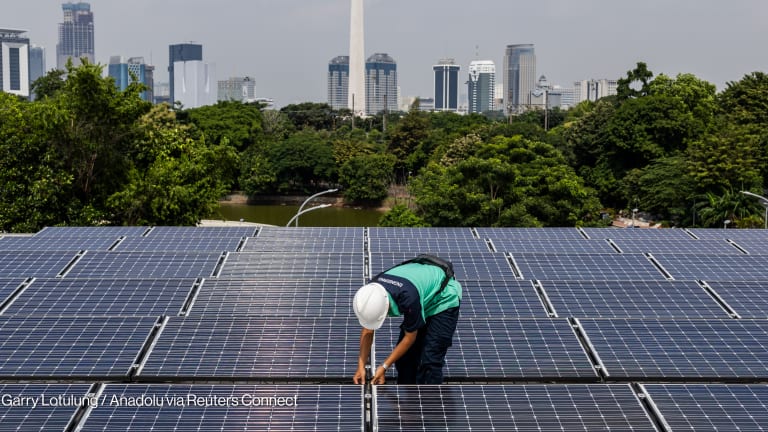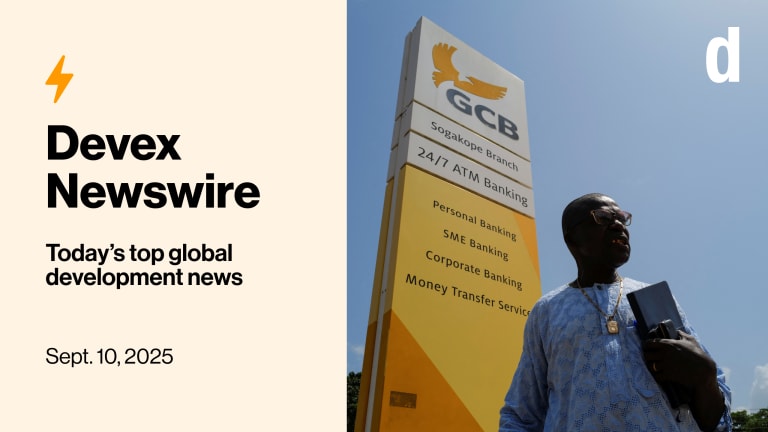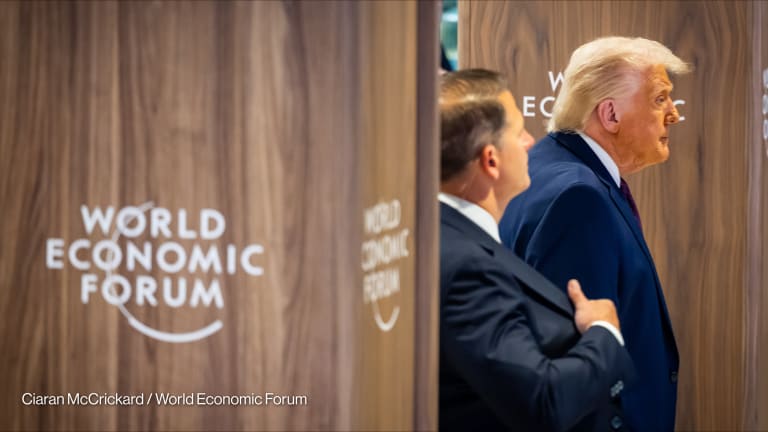
The energy access gap in Africa is daunting: More than half of the population, especially in sub-Saharan countries, still lacks access to modern electricity.
Despite the recent economic boom, the continent needs more energy if it is ever to become competitive in the future, according to African Union commissioner for infrastructure and energy Elham Mahmoud Ahmed Ibrahim.
Ibrahim told Devex on the sidelines of the Sustainable Energy in Africa conference in Brussels that at the present rate most African countries will not achieve universal access to electricity by 2050: “In recent years, the annual average power generating capacity installed was of 1,000 megawatts, while Africa would need a capacity of 7,000 megawatts per year.”
“Africa needs energy access in order to become competitive. Energy is a prerequisite for development, health, education, potable water, industrialization and combating poverty. It is essential for our development; we cannot achieve a prosper Africa without securing energy,” she added.
Here are a few excerpts of our conversation with Ibrahim:
What does the AU plan to do in order to bring energy to the off-grid Africa?
The AU is convinced that the Sustainable Energy for All Initiative Africa Hub, established at the end of May this year, is the right way forward for Africa. The initiative set three main goals to be reached by 2030: To ensure universal access to modern energy services, in particular access to electricity services, to double the global rate of improvement in energy efficiency and to double the share of renewable energy in the global energy mix. The hub is currently establishing its action plan, which will focus on decentralized energy solutions. It is crucial to remove all barriers regarding energy policies, governments, funding and investments in order to have effective implementation of energy projects.
How do you foresee the composition of the future energy mix in the AU?
We plan to exploit and use the high potential of hydropower, solar energy, wind energy and also geothermal energy, besides using the new technology for biomass. There is huge potential to expand solar projects in all African countries, as many countries have on average 325 days per year of bright sunlight, with more of 80 percent of their landscape receiving almost 2,000 kilowatts per hour of energy per square meter per year. Countries like South Africa, Egypt, Morocco and Tunisia have started constructing huge solar powers plants. Morocco, Egypt, South Africa, Ethiopia and Kenya are taking initiatives to construct big wind farms.
In the geothermal area, East Africa has remarkable potential and the AU is currently managing a regional geothermic program that includes 15 countries there. On renewable energy, a cooperation program has been established with the EU in 2010. The program already supports countries and regional economic communities in implementing policies, strategies and capacity building in the area of renewable energy and more involvement of the regions is currently under discussion. In sub-Saharan Africa, due to the underdevelopment of energy infrastructure and natural resources available, it would be possible to invest directly in clean technology.
Carbon financing could also support Africa and its investors, stimulating development while generating financial benefits and providing an effective response to climate change.
What are the priorities concerning infrastructure and services?
There is urgent need to enhance access to energy infrastructure and services, as well as inter-state trade in the energy sector by implementing major integrated hydropower projects and a transmission network. The gross theoretical hydropower potential in the continent is of about 4 million gigawatt-hours per year, with a technical feasible hydropower potential of about 1,750,000 kilowatts per hour per year, of which about 5 percent only is exploited. An ambitious framework for the development of regional and continental infrastructure is on the table in Africa, with an estimated overall capital cost of about $68 billion for delivering the priority action plan by 2020. The program for infrastructure development in Africa covers energy, ICT transport and trans-boundary water. In order to implement the program for infrastructure development in Africa we will need the strong participation of the private sector.
What is the role of the private sector and of non-EU actors?
Africa is looking to have its local industry to manufacture the systems, but is also keen to cooperate and work with EU and non-EU partners that are interested and that comply with the conditions and requests of the African countries. It is important to us to be also able to transfer the technology to build our industry. Indeed, Africa is open to all partners without differentiating between EU and non-EU ones, open to work together, on a quality basis, on a win-win basis. As Africans, we are not looking for aid from any partner, we are looking for cooperation. There is still a lot of work to be done, so we are welcoming everybody to come and help us in the task.
Eva Donelli contributed reporting.
Read more development aid news online, and subscribe to The Development Newswire to receive top international development headlines from the world’s leading donors, news sources and opinion leaders — emailed to you FREE every business day.








